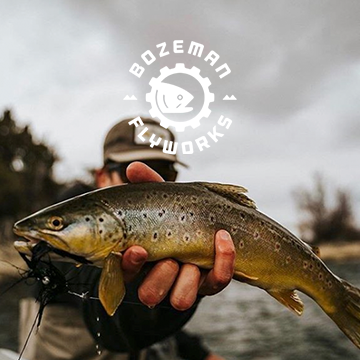Dry Flies and Lessons Learned
Trust
1. Love. Dry Flies.
As I’m sure you’ve read in a thousand different fly fishing tales and have experienced for yourself, there is nothing quite like watching a fish crush a big foam fly. Bass, trout, panfish, doesn’t matter.
My obsession with foam dry flies has its roots in my days using spinning gear for striped bass. Mid to late summer on Cape Cod means vertical jigging for striped bass. Yuck. Sitting in the middle of fifty other boats, bouncing jigs off the bottom makes me about as excited as going to the dentist. And sometimes on those days, the bass seem to turn off altogether. Nothing will coax a bite. About the time most of my friends call it a day, I throw convention out the window. If the fish don’t want to eat I’m going to make damn sure by throwing everything in the boat at them before I leave. Time and time again, topwater saves the day. I have witnessed numerous days with prolific topwater bites in 70-100 ft. of water.
Recalling these experiences stored in the back of my brain saved last Sunday for me.
It’s not often that we see 50 degrees during December in Maine, so I took the opportunity to head out in hopes of a hatch. Upon my arrival at the river, the only thing hatching were fly fishermen. Every hole known to man on that stretch of river was covered up. I sat for a while as I normally do, observing everyone and everything on the water. Bobbers and nymphs seemed to be the order of the day, but no one seemed to be catching.
About twenty yards down river from a popular run, the river takes a sharp left-hand bend. The current hugs the inside of the bend, leaving a large, deep backwater with relatively no current. I perched myself on a rock where I could get a good view of the water, and was able to see a half dozen or so big brook trout cruising. This backwater is 5-7 ft. deep and absolutely covered in submerged stumps, so trying to weave a weighted nymph rig was nearly impossible. Over the next hour I went through almost every combination of flies and presentations I knew, to no avail. That’s when it hit me.
One of my favorite foam flies is a size 10-12 foam beetle, skated and twitched across the surface. With my patience running thin, I tied the beetle on. I let the first cast sit, gently twitching the fly every few seconds. After a thorough inspection, a decent sized brookie nudged the beetle and swam away. As I began to strip the fly back, the fish turned on a dime. I paused the fly just in time for the fish to give me another bump and swim off. I recast and let the fly sit for a few seconds before aggressively stripping the beetle back, in much the same fashion as you would a mouse pattern. The fish hit the fly like it was shark week. Over the next twenty minutes, I proceeded to pick off each of the other five or so brook trout cruising that backwater. Day saved.

My lesson is this:
Trust your instincts and collective fishing knowledge. As a fairly novice fly fisherman, I sometimes get caught up in what "should and shouldn't work" on a given day. I let myself get intimidated when I see who I perceive to be more experienced anglers all using the same set up. While I'm not advocating intentionally doing the opposite of everyone else, sometimes changing things up and going the unorthodox route works. I always start with what I believe to be the most unobtrusive or gentle approach. The last thing you want to do is scare a pod of fish into lockjaw with an overly aggressive presentation right out of the gate. However, when all else fails, throw the Hail Mary.
Challenge that fish’s predatory instinct. While I’m no fisheries biologist, I think fish get bored sometimes, to put it plainly. Disrupt the water, make a scene. More times than not I have observed that if you can get one fish to bite, the rest will follow suit.
This exact logic led a friend of mine to being high hook on our annual steelhead trip to Pulaski, NY. While everyone else was chucking and ducking egg patterns, unbeknownst to us, he swung streamers. I firmly believe his success was predicated on his ability to think outside the box and present something entirely different, yet not completely unknown, to fish that have seen hundreds of egg patterns during their journey. So the next day you’re fishless on the water and what everyone else is doing isn’t working, change it up. If everyone else scoffs at you, don’t listen. They’re just jealous because you’re the one catching fish.



